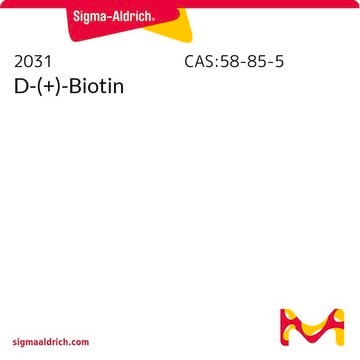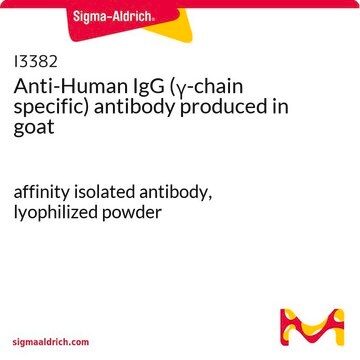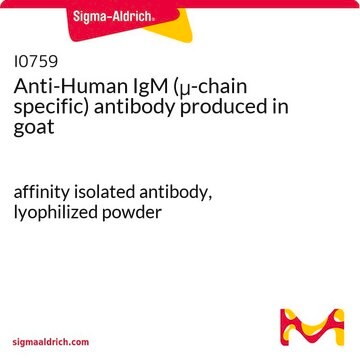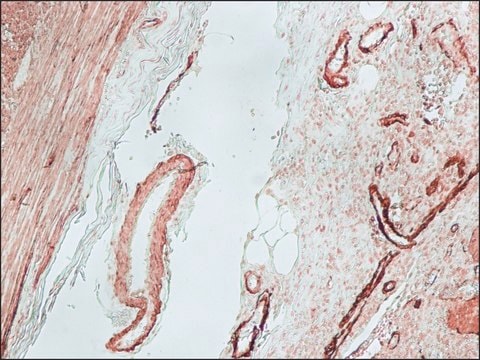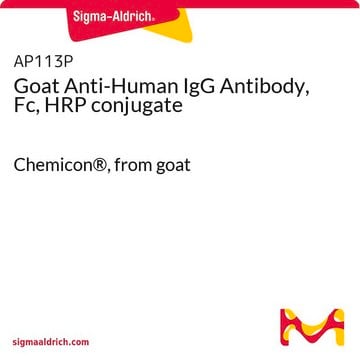B1140
Anti-Human IgG (γ-chain specific)-Biotin antibody produced in goat
affinity isolated antibody, buffered aqueous solution
About This Item
Produits recommandés
Source biologique
goat
Niveau de qualité
Conjugué
biotin conjugate
Forme d'anticorps
affinity isolated antibody
Type de produit anticorps
secondary antibodies
Clone
polyclonal
Forme
buffered aqueous solution
Technique(s)
direct ELISA: 1:20,000
Température de stockage
2-8°C
Modification post-traductionnelle de la cible
unmodified
Description générale
Anti-Human IgG (γ-chain specific)-Biotin antibody is specific for human IgG and does not bind other human immunoglobulins.
Immunogène
Application
Forme physique
Clause de non-responsabilité
Vous ne trouvez pas le bon produit ?
Essayez notre Outil de sélection de produits.
Code de la classe de stockage
10 - Combustible liquids
Classe de danger pour l'eau (WGK)
WGK 3
Point d'éclair (°F)
Not applicable
Point d'éclair (°C)
Not applicable
Certificats d'analyse (COA)
Recherchez un Certificats d'analyse (COA) en saisissant le numéro de lot du produit. Les numéros de lot figurent sur l'étiquette du produit après les mots "Lot" ou "Batch".
Déjà en possession de ce produit ?
Retrouvez la documentation relative aux produits que vous avez récemment achetés dans la Bibliothèque de documents.
Les clients ont également consulté
Notre équipe de scientifiques dispose d'une expérience dans tous les secteurs de la recherche, notamment en sciences de la vie, science des matériaux, synthèse chimique, chromatographie, analyse et dans de nombreux autres domaines..
Contacter notre Service technique

